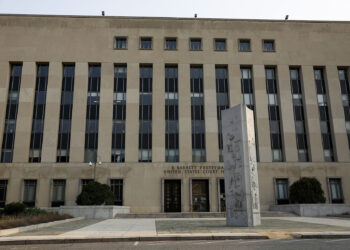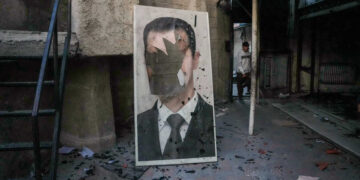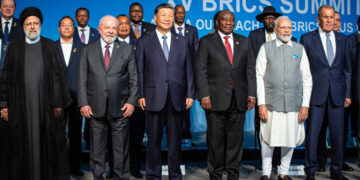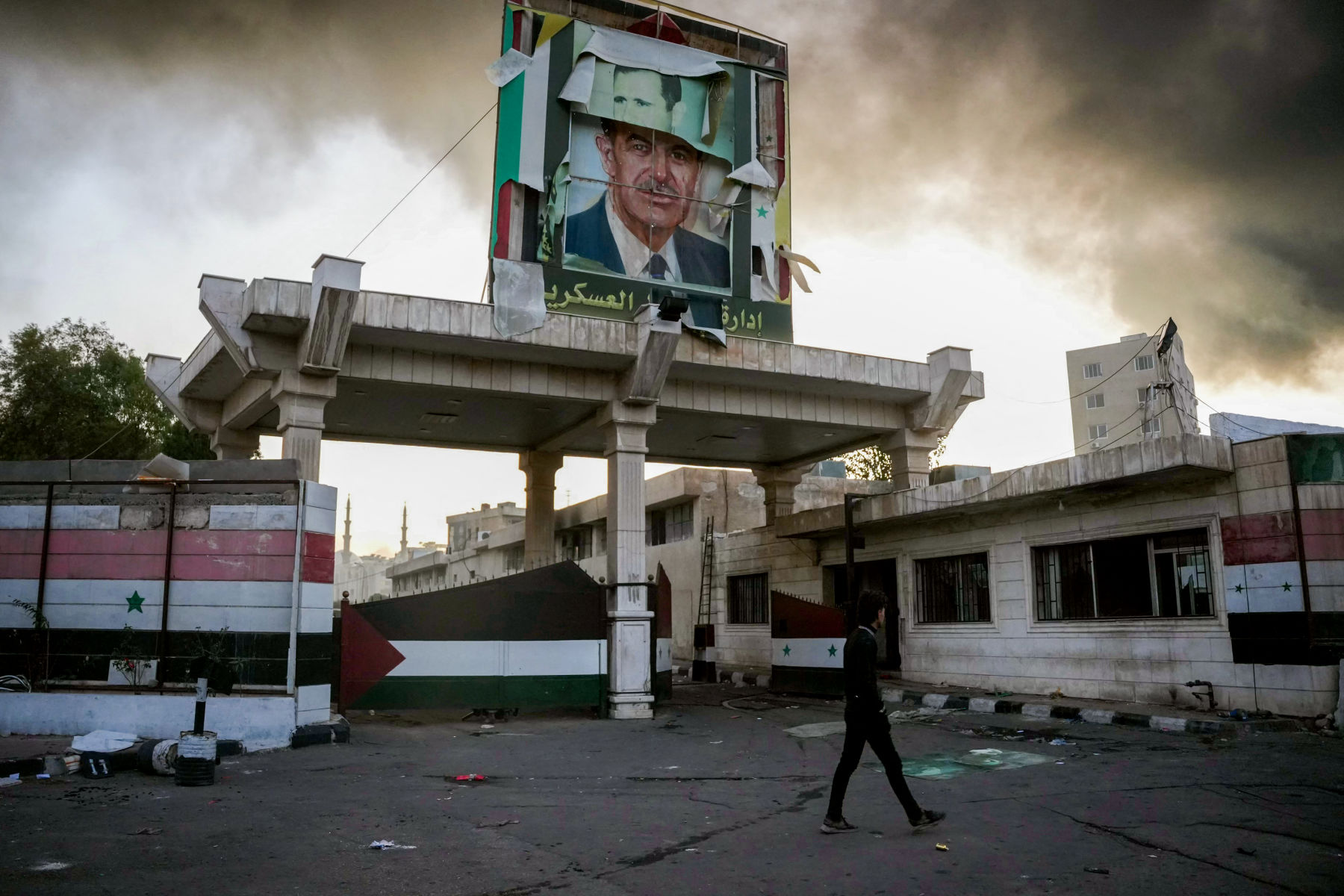Hala al-Dosari, a Saudi women’s rights activist, scholar and writer, is a DAWN fellow.
Hala Al-Dosari is a Saudi women's activist who left Saudi Arabia in 2014 and has not returned since for fear of being jailed for her activism. She has worked as a biomedical scientist, a consultant for the Ministry of Health of Saudi Arabia, and as a lecturer of health sciences. She completed a postdoctoral fellowship on the social determinants of health and gender-based violence research at Johns Hopkins University and a fellowship researching the influence of gender norms on women's rights in the Arab Gulf states. She has been honored with Freedom House's Freedom Award, which recognizes outstanding leaders in the cause of freedom and democracy, and the Alison Des Forges Award for Extraordinary Activism by Human Rights Watch.
Can you describe the circumstances of your leaving Saudi Arabia?
I was outside Saudi Arabia doing a post-doctoral fellowship in the U.S. in 2014-2015. I saw the changes in 2015, with the rise of King Salman and his son. Many women activists were summoned and accused. I felt I might not be safe if I went back. Most of the activists I knew were being arrested on trumped-up charges related to Saudi Arabia's cybercrimes and antiterrorism laws. In Saudi Arabia, peaceful activism is considered an act of terrorism. If you tweet anything considered critical or in favor of women's rights, the Saudi government might charge you with supporting terrorism.
What happened to your fellow activists inside Saudi Arabia?
Most remain in prison without trials or clear information on the charges against them. But the arrests are for engaging in human rights work, talking to other activists, meeting with journalists and diplomatic representatives – which are considered connecting with hostile agents. Many face punishments of up to 20 years in prison. The government mentioned my name in the charges against these women. So I knew it wasn't safe for me to return to Saudi Arabia. These women went through horrible torture and horrible conditions of detention.
Did any Saudi official try to contact you while you were in the United States?
Toward the end of 2015, I received a call from someone who claimed to be affiliated with the Saudi embassy in the United States, asking me to refrain from participating in a conference about Saudi Arabia. I was a health researcher, researching the social determinants of women's health. I was afraid if I participated, I would compromise my job in Saudi Arabia and my fellowship, which was sponsored by a Saudi science entity. So I didn't participate.
Have you faced any threats or harassment in exile?
Saudi exiles are routinely harassed over social media, especially through Twitter accounts that we suspect but can't prove are affiliated with the Saudi government. One account posts something, and then hundreds of accounts immediately retweet the post. An individual couldn't be that influential, but we don't have a way to trace the accounts to the Saudi cybersecurity department, which is a governmental unit under the royal court. The Twitter accounts try to discredit activists in the eyes of our fellow Saudis. They accuse me of trying to undermine the interests of the people of Saudi Arabia, of slandering Saudi Arabia abroad, of representing the Muslim Brotherhood or foreign interests. Other Twitter accounts accuse me of working with the Saudi government to lure Saudi activists back to Saudi Arabia. They try to discredit you and disconnect people from you. They also created several videos about me, all with the same message – that I'm a traitor, that I'm undermining the state. It's part of a pattern of the government undermining women activists.
What has been your response?
I don't tweet as much since 2018. I'm more active in writing articles, and I helped found The Great Saudi Podcast, sponsored by Amnesty International, that provides an Arabic-language platform to amplify the work of Saudi activists and journalists in exile. I'm now launching my own season on feminism in Saudi Arabia.
We are dealing with a government that has no reservations about attacking critics. My name has come up in the criminal charges of so many peaceful Saudi activists. It puts me in a position of responsibility and reflection to consider whether what I'm saying will influence people, or whether it will put activists in danger. People have learned to steer clear of women activists, or else they they will be judged guilty by association. Most people responding to my Twitter posts are exiles or English-speakers within the human rights community. It's not the Saudi people in Saudi Arabia They are afraid.
Your main audience is people in Saudi Arabia?
Always our main audience is our people. But the question is how to reach them in ways that are safe. Podcasts are one forum, because anyone can listen to them, and it's hard to censor them, hard to block iTunes, for example. Writing is another way to present your well-considered thoughts, rather than asking people to engage online in ways that would make them a target. I want to push back against the narrow view of nationalism promoted by the Saudi government – that if you are patriotic, you won't criticize the government or challenge gender norms. People have no way to express their views. This radicalizes critics and creates divisions. I am working toward creating a meaningful, inclusive environment, a space for people to voice their grievances and make claims of their government in a safe way. We don't have any independent organizations in Saudi Arabia – all the political parties, unions and organizations supposedly working for human rights – all of these are government bodies that report to the royal court. All the main media outlets are owned in one way or another by King Salman himself or members of the ruling family, and they are under the direct supervision of the ruling family, which even hires the editors-in-chief. So Twitter activity reflects the absence of civil society. People were compelled to go online, because there's no other place where they can voice their concerns without fear of reprisal by the government. For example, the activist Waleed Abulkhair used to host weekly meetings in his home, to discuss issues. He was sentenced to 15 years in prison for that.
What's hard about being in exile?
Missing the people. I used to be on television with the opportunity to engage with the amazing people of Saudi Arabia. I feel the loss of the kind of momentum and power that we had created. So many of us now are in prison or exile – and silenced. Also, I can't do the research I had been trying to build as a scholar, involving Saudi women as subjects. A foreign researcher can visit Saudi Arabia to do research, but I can't, because I have an opinion about the government. Being away from our loved ones, in a new country, also creates instability. We Saudi exiles are struggling to maintain our base, our social life and work, and everything is new. It takes a lot of time and effort, and it weakens our potential to do something together. But we are trying to continue our work. I am joining a cohort of people from many countries in the Middle East who have come before us.





































